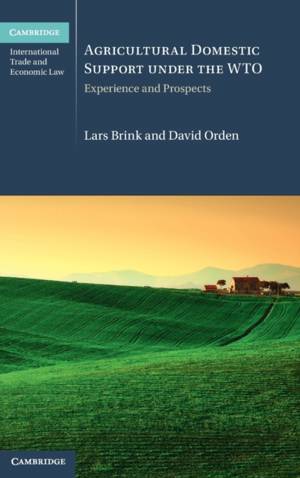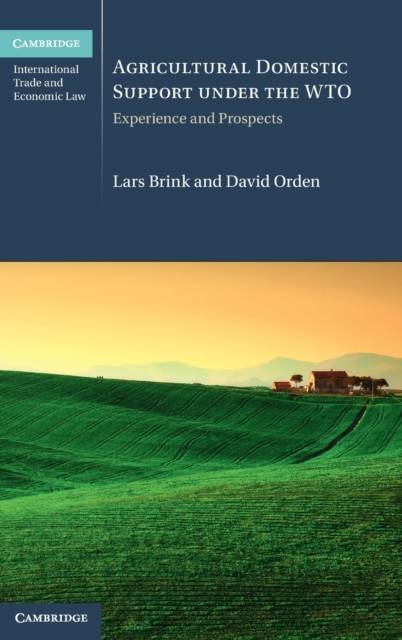
Door een staking bij bpost kan je online bestelling op dit moment iets langer onderweg zijn dan voorzien. Dringend iets nodig? Onze winkels ontvangen jou met open armen!
- Afhalen na 1 uur in een winkel met voorraad
- Gratis thuislevering in België vanaf € 30
- Ruim aanbod met 7 miljoen producten
Door een staking bij bpost kan je online bestelling op dit moment iets langer onderweg zijn dan voorzien. Dringend iets nodig? Onze winkels ontvangen jou met open armen!
- Afhalen na 1 uur in een winkel met voorraad
- Gratis thuislevering in België vanaf € 30
- Ruim aanbod met 7 miljoen producten
Zoeken
€ 180,45
+ 360 punten
Omschrijving
The WTO Agreement on Agriculture subjects different groups of developed and developing countries to different limits on domestic support and allows various exemptions from these limits. Offering a comprehensive assessment of the Agreement's rules and implementation, this book develops guidance toward socially desirable support policies. Although dispute settlement has clarified interpretation of the Agriculture and SCM Agreements, gaps remain between the legal disciplines and the economic effects of support. Considering the Agriculture Agreement also in the context of today's priorities of sustainability and climate change mitigation, Lars Brink and David Orden build a strategy that aligns the rules and members' commitments with the economic impacts of agricultural support measures. While providing in-depth analysis of the existing rules, their shortcomings and the limited scope of ongoing negotiations, the authors take a long-term view, where policies directed toward evolving priorities in agriculture are compatible with strengthened rules that reduce trade and production distortions.
Specificaties
Betrokkenen
- Auteur(s):
- Uitgeverij:
Inhoud
- Aantal bladzijden:
- 224
- Taal:
- Engels
- Reeks:
Eigenschappen
- Productcode (EAN):
- 9781316514054
- Verschijningsdatum:
- 16/02/2023
- Uitvoering:
- Hardcover
- Formaat:
- Genaaid
- Afmetingen:
- 152 mm x 229 mm
- Gewicht:
- 566 g

Alleen bij Standaard Boekhandel
+ 360 punten op je klantenkaart van Standaard Boekhandel
Beoordelingen
We publiceren alleen reviews die voldoen aan de voorwaarden voor reviews. Bekijk onze voorwaarden voor reviews.











